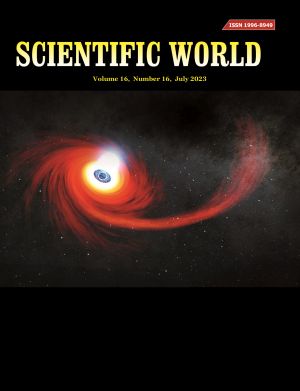Incorporation of Fe(iii) into Bentonite and Study of its As3+ Adsorption Properties
DOI:
https://doi.org/10.3126/sw.v16i16.56767Keywords:
Modified bentonite, Montmorillonite, Pillaring, Rate constantAbstract
Bentonite is montmorillonite type layered clay and has high cation exchange capacity (CEC) because of its typical layered silicate structure. The bentonite was treated with hydrochloric acid to obtain H-bentonite which was further modified by incorporating Fe(Ⅲ) into it. The modified Fe-bentonite was characterized by XRD and FTIR analyses. The specific surface area of the Fe-bentonite adsorbent was obtained from Methylene Blue Adsorption Method and was 598 m2/g.
The adsorption of As3+ by Fe-bentonite adsorbent in aqueous environment was investigated by varying different experimental parameters such as pH, contact time and adsorption isotherm. The adsorption process was found to be best fitted to Langmuir adsorption isotherm model controlled by pseudo-second –order kinetics with the rate constant value 0.03723 g/(mg.min). The maximum arsenic adsorption was observed at pH 5 at room temperature. The time taken to reach equilibrium was 75 minutes. The maximum adsorption capacity for As3+ on Fe-bentonite was 101.01 mg/g. The value of ∆G (-21 kJ/mole) confirmed the adsorption process was favored by physiosorption. The slope of the linear plot of Qt vs t0.5 was linear but not passed through the origin, which indicated that, the intraparticle diffusion was not only rate controlling step.




